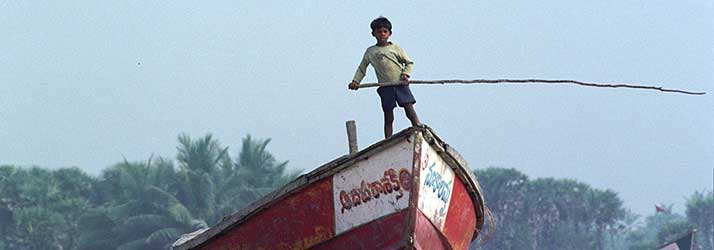Tuberculosis is a major health problem in India. The country has the largest number of TB cases in the world — over a quarter of the global total. Each year, more than two million people in India fall ill with TB, and nearly 300,000 people die from it. India is now second only to China in the number of new cases of multi drug-resistant TB (MDR-TB).
TB treatment for all
In 1993, the Indian government launched a nationwide programme providing free TB treatment for all. But in a vast country where a third of its 1.2 billion population lives on less than US$1.25 a day, it’s a challenge to make sure people can actually get to this life-saving treatment. Many people are still unaware they can get free treatment, even if they know they are ill with TB. In rural India, many are put off travelling to clinics because of transport costs, loss of earnings, or the distances involved. Certain tribal populations and lower castes are cut off from public health care. Some people, meanwhile, prefer traditional healers who are unregulated and know little about TB.
TB Alert has been working in India since 2000 to help the government reach the most vulnerable communities and give them access to life-saving treatment. Our sister organisation, TB Alert India, was formed in 2004 and has since been at the forefront of wide-ranging efforts to fight TB.
TB Alert India
We work hand in hand with our sister charity TB Alert India to develop, fund and implement a range of projects to tackle TB in the country. TB Alert India works across two states in central and southern India, Andhra Pradesh and Telangana.
Working closely with the Indian government, TB Alert India helps ensure people are treated and cured by the national TB programme. The organisation brings together local grassroots organisations, traditional healers, pharmacists, women’s self-help groups, people living with HIV, ex-patients and government health services. Together, they raise awareness of TB and refer people with symptoms to local health centres for diagnosis and treatment.

